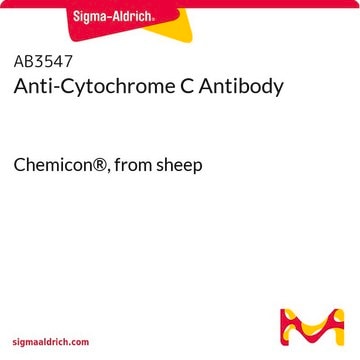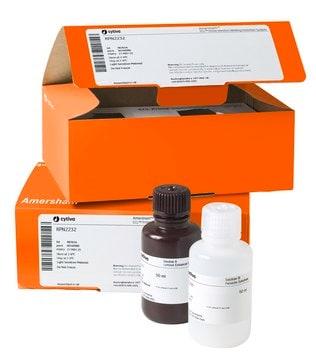05-673
Anti-phospho-Acetyl CoA Carboxylase (Ser79) Antibody, clone BK102
clone BK102, Upstate®, from mouse
About This Item
Produits recommandés
Source biologique
mouse
Niveau de qualité
Forme d'anticorps
purified immunoglobulin
Type de produit anticorps
primary antibodies
Clone
BK102, monoclonal
Espèces réactives
rat, mouse
Fabricant/nom de marque
Upstate®
Technique(s)
western blot: suitable
Isotype
IgG1λ
Numéro d'accès UniProt
Conditions d'expédition
wet ice
Modification post-traductionnelle de la cible
phosphorylation (pSer79)
Informations sur le gène
mouse ... Acaca(107476)
Spécificité
Immunogène
Application
Signaling
Insulin/Energy Signaling
Qualité
Description de la cible
Forme physique
Stockage et stabilité
Remarque sur l'analyse
Acid extracts of HeLa cells
Informations légales
Clause de non-responsabilité
Vous ne trouvez pas le bon produit ?
Essayez notre Outil de sélection de produits.
Code de la classe de stockage
12 - Non Combustible Liquids
Classe de danger pour l'eau (WGK)
WGK 1
Point d'éclair (°F)
Not applicable
Point d'éclair (°C)
Not applicable
Certificats d'analyse (COA)
Recherchez un Certificats d'analyse (COA) en saisissant le numéro de lot du produit. Les numéros de lot figurent sur l'étiquette du produit après les mots "Lot" ou "Batch".
Déjà en possession de ce produit ?
Retrouvez la documentation relative aux produits que vous avez récemment achetés dans la Bibliothèque de documents.
Notre équipe de scientifiques dispose d'une expérience dans tous les secteurs de la recherche, notamment en sciences de la vie, science des matériaux, synthèse chimique, chromatographie, analyse et dans de nombreux autres domaines..
Contacter notre Service technique








